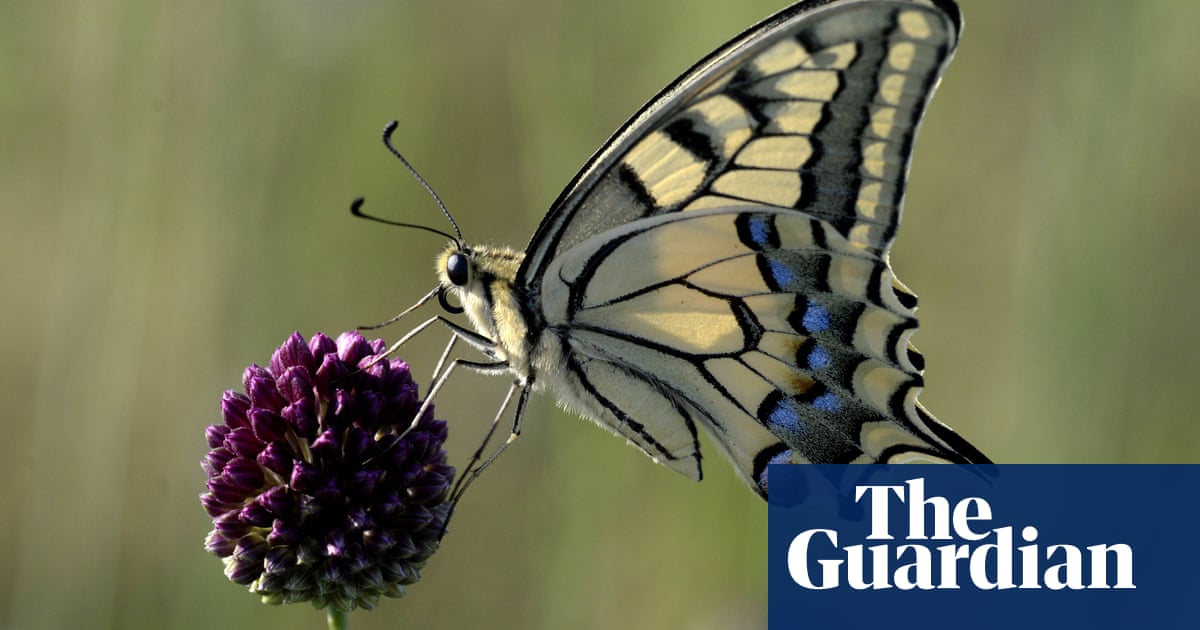The swallowtail, one of Britain’s rarest butterflies and also the largest, has suffered its worst summer since records began.
The butterfly is confined to the Broads in East Anglia, where its caterpillar’s food plant is found, and is now breeding on just 16 sites.
This is the best summary I could come up with:
Summer droughts and sea level rise are causing saltwater to enter the freshwater Broads, while winter floods are covering marshland with water for prolonged periods, threatening many rare species.
This year, the Royal Society for the Protection of Birds (RSPB) is seeking a licence from Natural England to propagate extra milk parsley and plant them in wet locations on slightly higher ground, which is less likely to be inundated by salt water or floods.
Ben Lewis, RSPB warden for Sutton Fen in Norfolk, which has a bigger swallowtail population than any other site, said 2022 was the driest year on record on the reserve and 2023 was the wettest.
At Hickling national nature reserve, Norfolk Wildlife Trust has shifted flood banks back to create more species-rich wetlands in front of them but John Blackburn, the warden, said rising water levels in the Broads driven by the climate crisis were inundating new marshland up to 10 years ahead of forecasts.
Collins said: “We’re not recognising sufficiently the Broads national park’s ecosystem services to flood management, biodiversity conservation and carbon sequestration, not to mention wellbeing for its near 8 million annual visitors – it is a much underrated public benefit.
“If we’re going to protect the Broads as one of Britain’s most biodiverse and important nature areas, there should be pressure on Defra to greatly increase the funding for this magnificent wetland.”
The original article contains 958 words, the summary contains 230 words. Saved 76%. I’m a bot and I’m open source!



